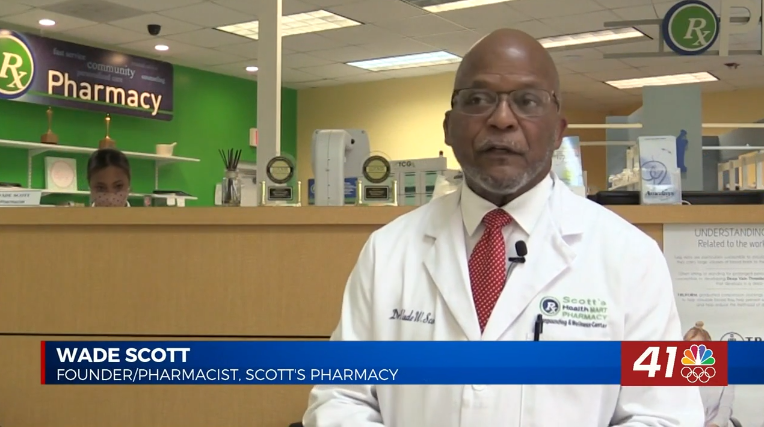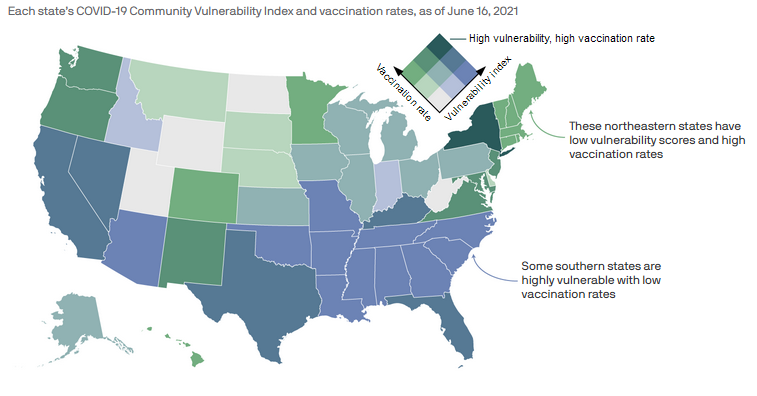Autumn of doom, the (naked) mole rats we need, compounders to the rescue, and more
22 Jun 2021
Posted by Andrew Kantor
An mRNA vaccine for malaria
Good news for rodents: Now that we know how well mRNA vaccines can work, what’s the next target? How about malaria? A group of military and civilian researchers have done just that … for mice, at least.
Make no mistake, this is Very Big Deal. Sure, it’ll show that mRNA isn’t a one-trick pony, but more importantly, if it works on humans, this will be the first legit vaccine for malaria. (The only other one doesn’t work all that well.)
Hope you had a great time!
Thanks to everyone who came to this year’s Georgia Pharmacy Convention — in person or virtually! GPhA’s staff is still recovering, but once they’re back we’ll have plenty of photos and info for ya.
In the meantime, mark your calendars for the 2022 convention, June 9-12, 2022, back at the Omni Amelia Island and those amazing beaches. (And education sessions. Those too.)
And, of course, a huge and special* thanks to our sponsors. We couldn’t do it without you!


* Not inappropriately special
Shout-out to Wade Scott
Georgia has only used about half its available vaccines, and GPhA member — and founder/owner of Scott’s Pharmacy in Macon — Wade Scott got 18.2 seconds of his 15 minutes of fame explaining that to NBC41, and how he’s trying to get the word (and the vaccines) out.

Why we need more like Wade
Georgia is among almost a dozen states in the ‘sour spot’: a combination of low vaccination rates and high vulnerability (e.g., underlying conditions, lack of healthcare access). With the Delta variant gaining ground, vaccination is becoming even more critical — even if saying “more critical” makes English teachers grumpy.

I guess we’ll see
Former FDA commish Scott Gottlieb is not looking forward to the fall, when he says that epidemiology models say the Delta variant is going to, well, if not wreak havoc, at least cause a major surge in cases among the unvaccinated.
[H]e said states with low vaccination rates already are showing a concerning rise in cases with the spreading of delta, which is up to 60 percent more contagious than earlier variants.
What would it be like to live in a Petri dish?
Who can save us? Pharmacies. Compounding pharmacies.
That’s the point of an op-ed in The Hill by a couple of researchers at George Mason University’s Mercatus Center. Their point was that compounders can fill in quickly when drugs are in shortage … say, if we ever happened to have another pandemic. Or a storm. Or an alien invasion.
(The FDA called on compounding pharmacies (with temporary guidance) to cover for shortages when the Covid-19 pandemic began, and a bill in Congress (HRTKTK) would make that sorta-kinda permanent, so there’s a shortage safety net in place.)
To be proactive, policymakers should stay ahead of the curve before the next crisis arises. Moreover, even when a pandemic is not raging across the country, the health system often experiences drug shortages. The American Society of Health System Pharmacists has a portal for members to report regional drug shortages, and the FDA has a national drug shortages list that is periodically updated. Behind the drugs on these lists are real people in dire need of medications.
Captain Obvious looks good in glasses
Problem is, masks make them fog up. Apparently no one has heard of soap.
Astepro goes OTC
The FDA has approved Bayer’s antihistamine nasal spray Astepro for OTC use. That is all.
The Long Read: Naked Mole Rats edition
Who doesn’t love a naked mole rat? They’re weird looking, they mess up your Google search history, and they combine two of everyone’s favorite animals. Oh, and they live a lonnng time, and they’re virtually immune to degenerative disease. Ergo, “Naked mole rats may hold key to treating cancer and dementia”.


